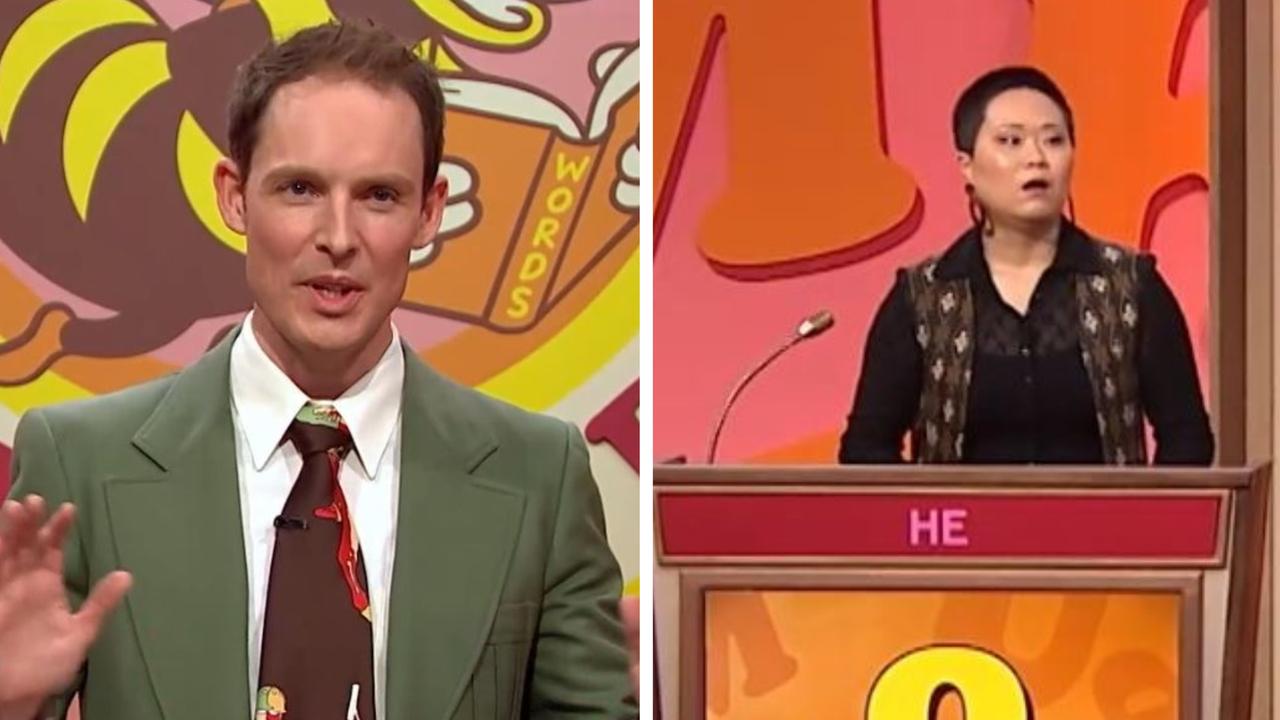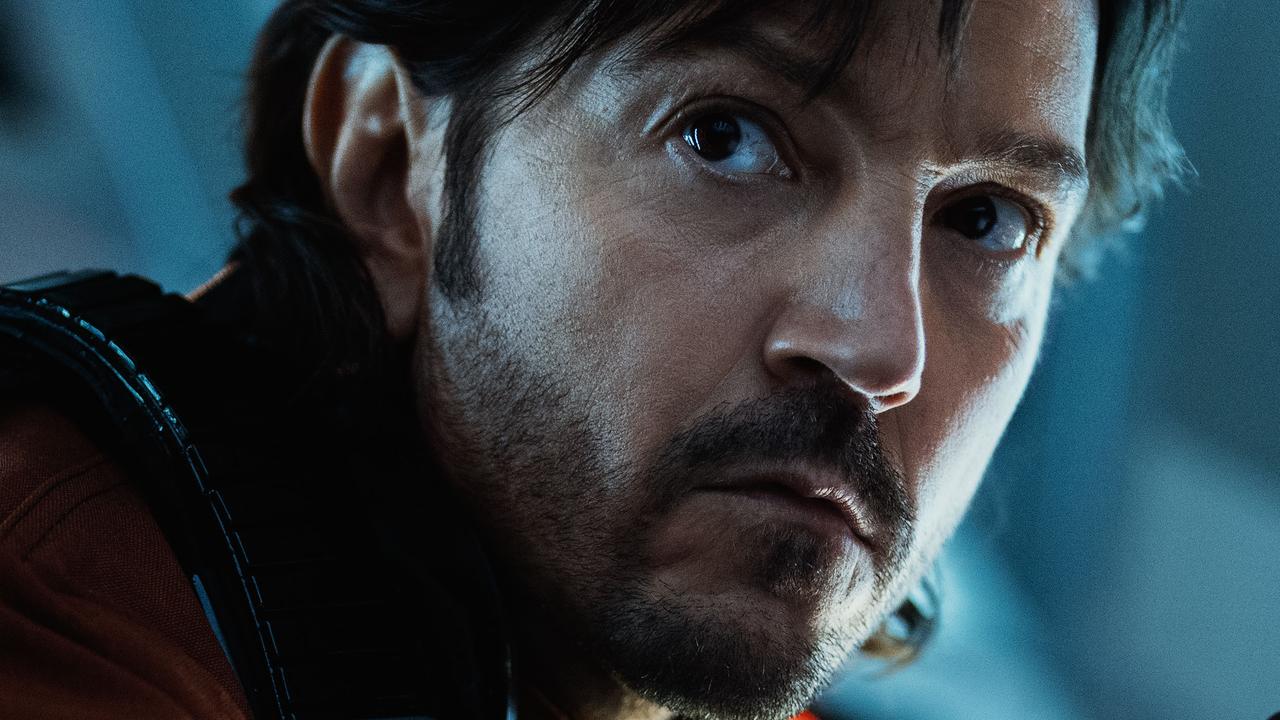Eric Bana talks Dirty John TV show and sociopaths
Enthralling but creepy, a new Netflix series starring Eric Bana and Connie Britton drops on the streaming service tonight.

The story of John “Dirty John” Meehan captivated millions of people around the world when Los Angeles Times reporter Christopher Goffard launched its popular podcast in 2017.
The spine-chilling tale of a charismatic conman who captured the heart of a wealthy Californian woman was great storytelling — exactly the kind of material that lends itself to a TV miniseries.
Dirty John, the eight-part dramatisation of it, launches on Netflix today after its original debut in the US late last year.
In the TV version, Eric Bana plays Meehan, who meets Debra Newell (Connie Britton) through an online dating service. She’s immediately smitten by this kind man who claims to be a doctor. They start a whirlwind romance but her daughters are far from convinced of his supposed good intentions.
It’s a seductive albeit unsettling series that hooks you into its world, laced with the melodrama of the likes of Desperate Housewives or a Shonda Rhimes show. The performances from Bana and Britton are what keeps it grounded — and the knowledge those bonkers things really happened.
To promote its launch on Netflix in Australia, Bana sat down with news.com.au to shoot the breeze about playing a sociopath, why we’re drawn to dark stories and the red flags people should look out for in the dating world.
Is it perverse or a cautionary tale to launch Dirty John, a show about how online dating can go so wrong, on Valentines’ Day?
All of the above. I didn’t choose the timing, you’ll have to speak to Netflix about that but I thought it was quite genius! It’s most definitely a cautionary tale and I think there’s plenty of warnings and lessons in it.
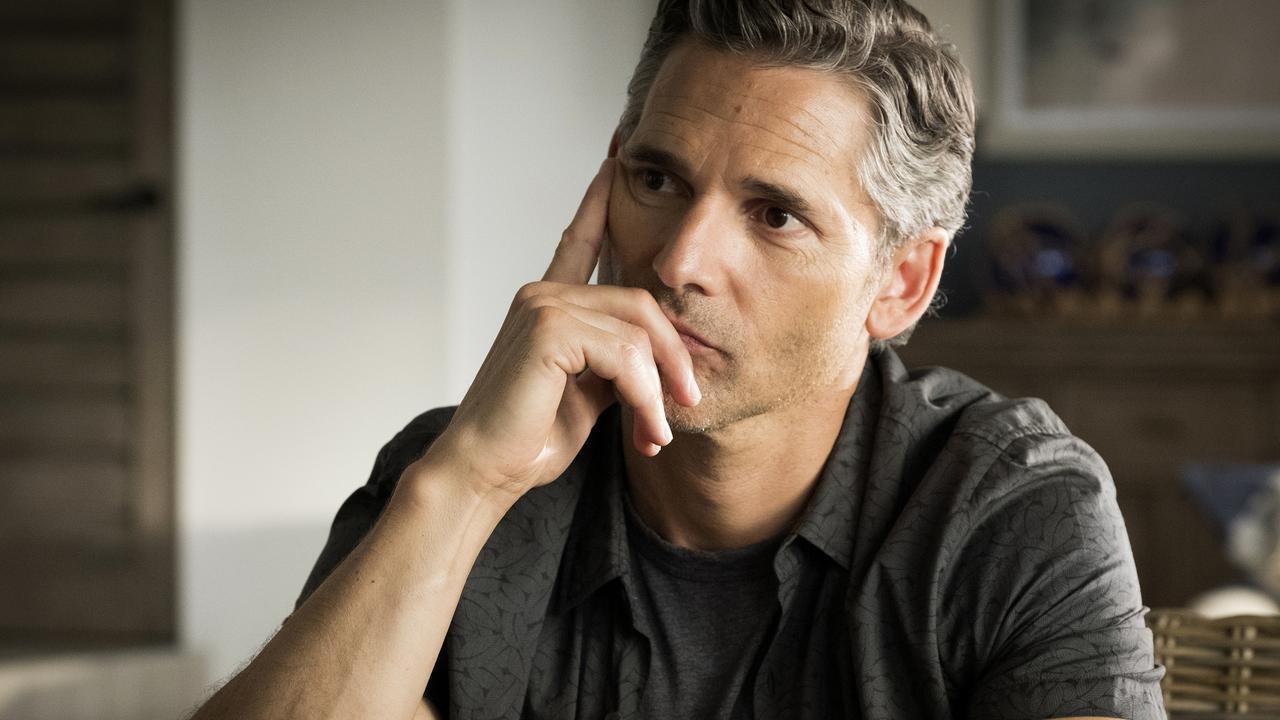
Tell me about your decision to not meet Debra Newell or her family until after the production wrapped.
I had a head start on my prep so by the time I got to California to start shooting, my version of John Meehan was pretty fully formed. Connie had already established a relationship with Debra and I wanted to keep the two separate. Maybe it was something instinctual; I felt I didn’t want to tap into Debra’s stuff and or into what Connie’s process was.
I wanted to keep the two things separate. When you’re playing a real person, at a certain stage you need to claim a certain ownership and you want to make decisions for that character creatively and I felt like it was more important for me and director Jeff Reiner and head writer Alexandra Cunningham to talk about those things. And I felt I had more than enough information and I didn’t want to get derailed.
What are the sensitivities around playing someone whose victims aren’t only around, but for them everything that happened was only two or three years ago?
Where you’re aware of those sensitivities is your confidence in the production — that you’re making a good project. So if you feel like the subject matter is going to be exploited or sensationalist then it’s a different thing. But from the get-go, I felt very confident in the team.
This is Debra’s story — John happens to her, she’s our moral compass, she’s where the sympathy sits, she’s where the understanding and empathy sits, not with my character.
My job is to portray this terrible person as believably as possible. Because if you don’t buy John, it’s harder to excuse and understand Debra’s behaviour.
Other actors who have played bad guys have said that to play a villain, they also have to believe this person is the hero of their own story. Did you think about John that way, that maybe he didn’t see himself as the bad guy?
I don’t know if that was the case with John. I think he was aware that he was a pretty bad person. It wasn’t like he was on some kind of crusade, he wasn’t defending any honourable code, he was just a conman and a swindler.
Who knows what his real reasons for doing this stuff were. I think he’s someone who could’ve been in therapy in 20 years and he wouldn’t get to the bottom of it. So I was like, “I’m not getting to the bottom of that, I’ll try, I’ll get as far down as can” but I don’t think it’s absolutely essential that in every case you need to have huge empathy for the character to portray them.
There are a lot of dark things going on in the world and yet people are really drawn to these true crime stories. Why do you think people respond to the darkness?
I think it’s similar with horror. I did my first horror film with Scott Derrickson who’s a highly intelligent filmmaker and he knows a lot about the horror genre. He has articulated it well in the past about why we’re attracted to darkness.
It has a lot to do with making our everyday life feel really good. These stories are a great counterpoint and we can feel better about ourselves. I think with this story, sometimes people feel like they’re better than that — “I wouldn’t ever get in this position, I would be a better judge of character” or “I’m a better person than that person on that reality TV show, I would be able to cook better than that person”.
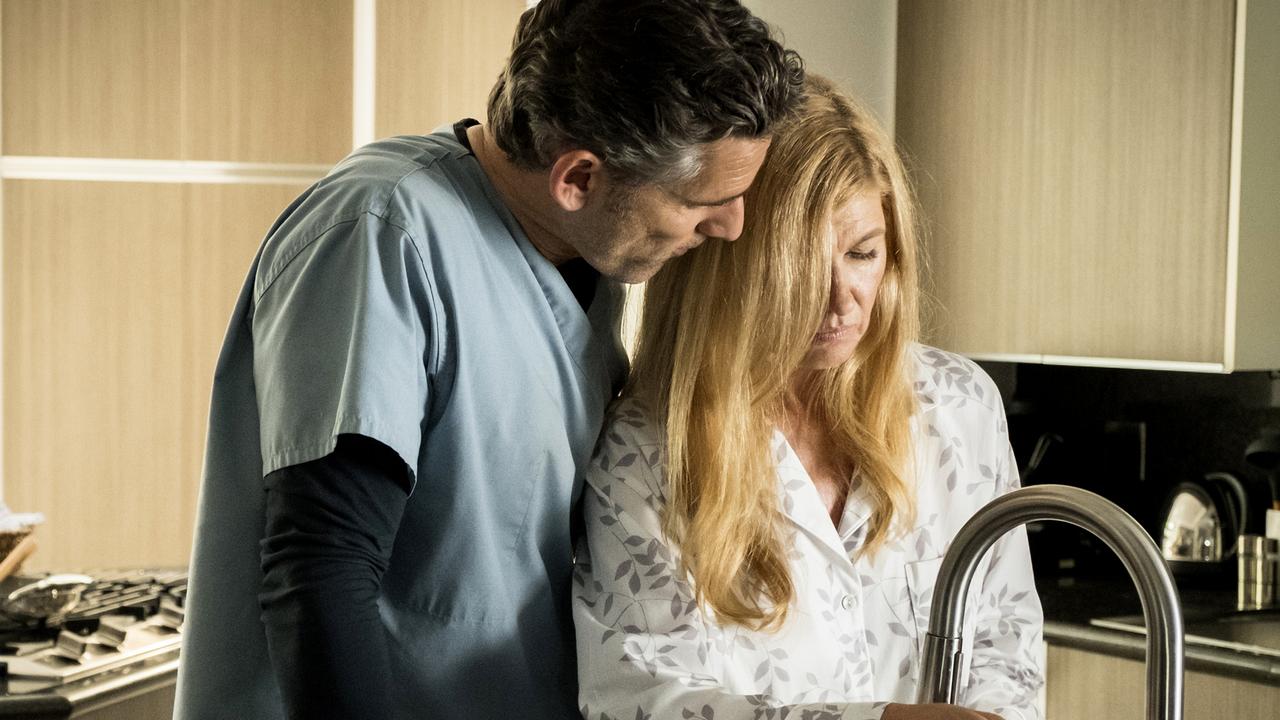
I think intrinsically people like to feel better about themselves and I think sometimes with the tales out there, particularly this one, that’s prompted a lot of that. There are people who find it hard to fathom that Debra stays as long as she does.
We’re thankful to Debra that one of the reasons she wanted to tell the story was that she felt that it could do some good and get women talking among themselves, and women looking out for each other in terms of potentially dangerous partners.
You met Debra and the other real-life counterparts eventually?
It was quite brief. She came up to me and said “I don’t know whether to hug you or slap you” because she’d seen the whole season.
The reaction from Terra the daughter was more interesting because she was genuinely still suffering from trauma.
We met each other in the make-up trailer — she came in and did a background extra thing in the last week of production — and was quite wary of meeting me. One of the advantages of not playing someone from the same country was the minute I started talking she was like, “You don’t sound like him, it’s OK’.
And I got to meet some of the other family members. I got to meet John’s real daughters and I got to meet Tonia, his ex-wife. It was really interesting, especially to meet his daughters actually — one who never knew him at all and one has very little memory of him. They were very sweet, I really felt for them.
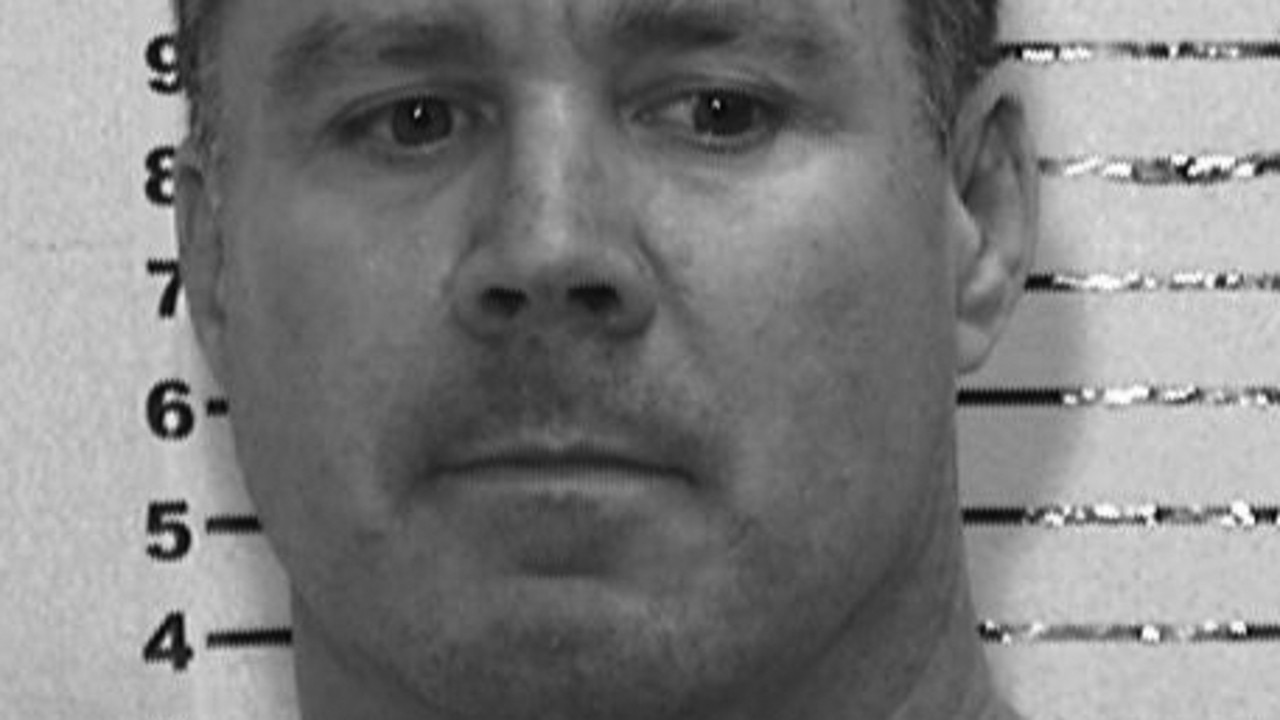
Now that you’ve played a sociopath, what are some of the people should look out for?
I have a list. The number one thing for me, based on my experiences, is intricate backstories that can’t be substantiated or corroborated in the present by anyone.
They’re quite often, conveniently, from another city, and have parents who, quite often, have died.
So strangers who are lonely?
Yeah, but let’s get this straight, I’m talking about lying sociopaths! Not people who happened to have, by unfortunate circumstances, no parents and living in a different city! Just want to get that out there. But yes, they’ve fallen out with friends, fallen out with family members — a lot of weird intricate detail that holds up under cross examination but funnily enough, no one in the present who can corroborate. That’s a real red flag.
A man wearing cargo shorts perhaps. I had a friend of mine say, “this is a nightmare because not only are women suspicious of us single guys, now they’re going to be suspicious of us when we’re really nice to them”. So maybe overly nice men.
OK, so strangers who are lonely and overly nice?
You better keep this in context, or I’ll get in trouble!
(Edited for clarity and length)
Dirty John is streaming on Netflix now.
Share your TV and movies obsessions: @wenleima



